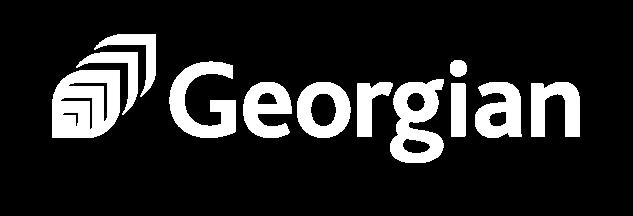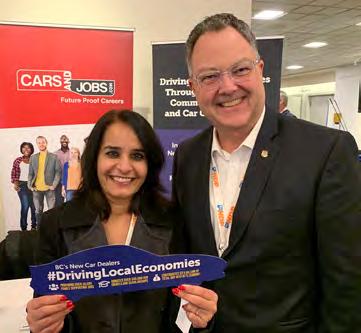
6 minute read
Cover Story: Keeping Our Roads Safe
Keeping Our Roads Safe
A Q&A with the Honourable David Eby, BC Attorney General
David Eby was elected MLA for Vancouver-Point Grey in 2013. He was re-elected in 2017 to serve a second term in the BC Legislature and appointed to his current role as Attorney General by Premier John Horgan. Before he was elected, David was the executive director of the BC Civil Liberties Association, an adjunct professor of law at the University of British Columbia and president of the HIV/AIDS Legal Network. He also served on the Vancouver Foundation’s Health and Social Development Committee.
He is an award-winning human rights lawyer and has appeared at all levels of court in BC.
What is your vision for ICBC? For decades, ICBC has provided affordable insurance to British Columbians, and also provided all of the benefits that flow from having an insurer interested in improving road safety directly connected to the Ministry of Transportation. It has also contributed to BC’s economic success through all of the economic activity and social benefits generated by having its head office in our province.
My goal is to bring ICBC rates back to affordability for BC drivers while stabilizing the organizational finances of this important public asset. More of the money paid by drivers for insurance needs to go back to them in the form of benefits, whether that’s lower rates or better services, or both.
What are you expecting to accomplish before the next election? Going into the next election, I’d like to say that ICBC has stable finances, and that we’ve re-established affordable car insurance rates for British Columbians after the mess we were left with when we took office in 2017. I think these goals are realistic, but there’s a lot of work ahead. It’s important to be pragmatic about timelines in a minority parliament—it’s not always up to the governing party in a minority situation when the next election will happen!
What are you currently working on to make ICBC more viable? Our initial round of reforms has stabilized ICBC’s finances and brought us from billion-dollar losses to within striking distance of breaking even. We’ve done this while introducing a series of reforms that dramatically improve benefits for those who are injured. We recently doubled the overall medical care and recovery cost allowance to $300,000. People who are injured are now entitled to higher wage loss benefits and more money for household support. Also, more types of treatments are covered for the market rate that treatment providers charge—instead of at a rate set in the 1990s and not updated since then.
While we’ve had successes, we’ve also had setbacks. An important, cost-reducing reform to how expert witnesses are used in court was struck down late this year. We’ve had to go back to the drawing board on that reform, and we will be introducing changes to the Evidence Act in the spring that will limit the number of adversarial expert reports, but also include limited judicial discretion to allow additional experts in appropriate cases. We’re also looking at other reforms to drive legal costs down. One in four dollars collected by ICBC goes to legal administration costs.
With our springtime amendments, I expect to achieve savings for ICBC, as well as reduce costs for crash victims to help them keep more of their benefits instead of seeing that money go to pay for multiple expert reports that cost as much as $5,000 to $10,000.
What are your goals for improving road and traffic safety? ICBC rebates for vehicles that are safer on the road because they have enhanced braking systems? What other steps are you prepared to take to improve traffic and road safety in our communities? Improving road safety is important, and long-term reform is needed in our province not just to drive ICBC costs down, but to ensure that our friends and family members come home safely at the end of each day. We have a number of initiatives to address this important issue.
One of the initiatives is a telematics pilot, where ICBC hopes to recruit up to 7,000 eligible drivers to assess if appbased technology can improve driving behaviour and, as a result, make our roads safer. This pilot will be live and underway early next year.
We have added speed detection to red light cameras to detect vehicles speeding above a designated threshold at high-collision intersections. Big signs leading into the intersections warn about the cameras —the goal is not to increase revenue, it is to get people to slow down before they drive through these high-accident, high-fatality zones.
Another initiative to improve road safety is a new high-friction pavement treatment on roads. High-friction surfaces are now in place at 14 high-collision locations in the Lower Mainland and on southern Vancouver Island as part of a pilot program. This special pavement toughens the road surface to reduce skidding and helps vehicles come to a complete stop, quickly and safely, without rear-ending the vehicle in front. If the treatment produces productive results, we will use it more broadly in the province.
ICBC is also offering up to a 10 per cent discount on premiums for vehicles with Autonomous Emergency Breaking—a safety feature that anticipates when a vehicle is about to have a front-end collision and automatically engages the breaks without any action from the driver. Having this feature in vehicles helps make the roads safer.
You have been Attorney General for just over two years now. How have you been able to change the ministry? Government? It’s not about changing the ministry or government as much as it’s about making life better for British Columbians. I’m really proud of our track record over the past two years.
We’ve stepped up to increase support for legal aid, something that was neglected for far too long. We’re setting up new legal clinics to provide free legal help to people on issues like poverty, housing, immigration and disability. We’ve also re-established the Office of the Human Rights Commissioner to promote and protect human rights, and we are working with our Indigenous partners on transformative change in the justice system.
And we took, very seriously, the impact of money laundering on our economy and our communities, commissioning three independent reports and launching a public inquiry to get answers; but beyond that, we’ve banned unsourced bulk cash transactions in our casinos, increased regulatory enforcement at gaming facilities, and supported law enforcement efforts related to gaming and money laundering in the province through a new suspicious transaction review team.
How can BC’s New Car Dealers help you in your work on public safety, including your distracted driving initiatives? Educating your clients about choosing advanced safety features in vehicles will help reduce injuries and collisions, and will also save them insurance money. Encouraging your buyers to make good safety choices when choosing a vehicle will benefit everyone.
Contact Minister Eby: AG.minister@gov.bc.ca / 250-387-1866

The Honourable David Eby and NCDA President and CEO Blair Qualey. Photo NCDA Files
AUTO DEALER SUPPLIES & PROMOTIONAL PRODUCTS
Ad License Plates • Balloons • Banners • Bucko-Banners • Contracts • Decals • Domed Decals • Envelopes • Fasteners Flags • Key Keeper Systems • Key Tags • License Plate Frames • Markers • Mirror Cards • Option Stickers • Pennants • Signs Swooper Flags • Vinyl Numbers • Warranty Cases • Window Graphics • Windshield Stickers... and much more!











